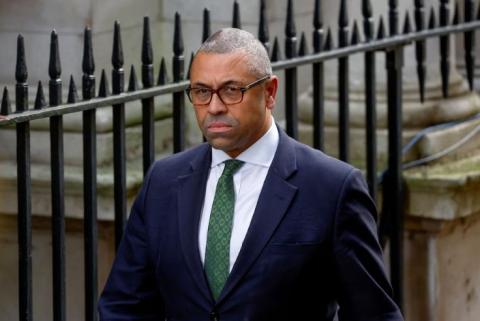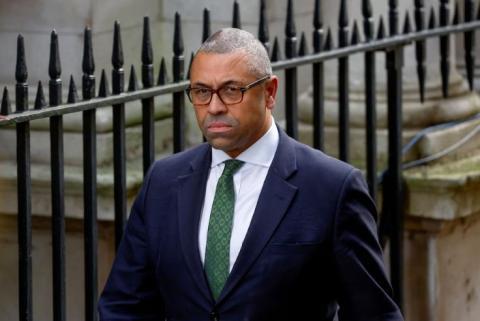
Delivered by
Nada Al-Nashif, United Nations Deputy High Commissioner for Human Rights
At
Enhanced Interactive Dialogue on the Sudan, 57th session of the Human Rights Council
Location
Geneva, Palais des Nations, Room XX
Mr. President,
Excellencies,
Distinguished delegates,
Over sixteen months on, the conflict in Sudan continues to spiral out of control. Civilians bear the brunt of hostilities between the Sudanese Armed Forces (SAF) and the Rapid Support Forces (RSF), and respective allied armed movements and militias, conducted with total disregard for international law.
Since the High Commissioner’s update to this Council in March, the conflict has escalated further. Declarations by the warring parties of commitments to protect civilians remain empty, with violations continuing unabated.
Our Office and the Designated Expert continue to document violations of international humanitarian law and human rights violations and abuses by all parties to the conflict. Indiscriminate attacks and the use of weapons with wide-area effects in densely populated areas have resulted in thousands of civilian casualties, destruction of vital infrastructure – including hospitals, schools and markets – and decimation of sources of livelihoods.
Since May, El Fasher in North Darfur has been ravaged by heavy fighting: the targeting of medical facilities has deprived the population of health services. From June to August, we documented over 864 civilian deaths in attacks on residential areas across Sudan.
Our Office is particularly alarmed by the use, since the beginning of the conflict, of sexual violence as a weapon of war. We have documented 97 incidents involving 172 victims, predominantly women and girls – which is a gross under-representation of the reality. Responsibility for 81 per cent of incidents was attributed to men in RSF uniform and affiliated armed men. We also received credible reports of sexual violence attributed to SAF troops and the allied armed movements. We again urge the parties to issue and enforce strict command orders to prohibit and punish sexual violence, and to take other effective steps to prevent it.
I am deeply troubled by ethnically motivated attacks and hate speech. Our Office has documented multiple testimonies recounting summary executions, sexual violence and forced displacement perpetrated by the RSF and allied Arab militia, notably targeting the Masalit community in West Darfur. Ethnically motivated violence, harassment and arrests were also documented in Darfur and Al-Jazirah.
The mobilization of civilians, including children, has intensified across Sudan, particularly along tribal lines. This poses risks of a widening civil war with further ethnic dimensions.
Civic space is increasingly shrinking. Across the country, states of emergency are relied upon to curtail activities of civil society organisations and journalists, and to detain individuals based on political opinion. Since telecommunications blackouts in February and March, restrictions have continued, with recent efforts to block the use of satellite internet access. These vital services for civilians and humanitarians alike must be maintained.
Arbitrary detention by both parties, and allied armed movements, continues. Our Office documented increasing arrests by Military Intelligence, and imposition of death sentences, for alleged support for the RSF, often based upon real or presumed tribal identity. We have also documented unlawful detention, again often based on ethnicity, by the RSF in Darfur.
Accountability is critical to end longstanding impunity. In this regard, the continued work of the International Fact-Finding Mission on Sudan is vital, and I urge all parties to cooperate with the Mission, whose investigative mandate complements the broader engagement by our Office and the Designated Expert. I also urge the Council and Member States to carefully consider the findings of the Fact Finding Mission.
Mr. President,
This senseless conflict has had a devastating impact on economic and social rights, in particular the rights to food, to housing, and to education. As a result, Over 20 per cent of the population is displaced – that is 10.7 million people internally and 2.1 million in neighbouring countries. Sudan faces critical levels of food insecurity, with an imminent risk of famine and more than half of its population – 25.6 million people – in acute hunger.
Despite operational challenges, our Office and the Designated Expert continue to monitor and analyse the human rights situation, engage with national stakeholders including civil society, and support political and humanitarian efforts. I reiterate the urgency of visa approvals for our international staff to access Sudan, to enhance this engagement.
I also welcome recent proximity talks convened by the Personal Envoy of the Secretary-General, which we supported through technical advice, and the Aligned for Advancing Lifesaving and Peace in Sudan (ALPS) Group initiative.
I urge the international community and States with influence to take necessary actions to end the hostilities and support inclusive dialogue to pave the way for a civilian transition. Such efforts must consider economic interests that undermine peace.
Our Office remains ready to engage with all parties and actors to support concrete measures to uphold human rights and effectively protect civilians.
السيدة نائبة الرئيس
كما أكد المفوض السامي أمام مجلس حقوق الإنسان ، كان هناك أمل للسودان قبل عامين و لكن اليوم يعاني الشعب السوداني من أزمة غير مسبوقة على المستوى العالمي يغذّيها الإفلات من العقاب و الصراع المستميت على السلطة و توظيف التوترات العرقية لغايات سياسية و مصالح إقليمية .
يجب على المجتمع الدولي ألاّ يسمح بإستمرار هذا الوضع و أن يضع نهاية لهذة المأساة في حق الشعب السوداني الذي آن له ان يتمتع بالأمن و السلام و الإستقرار .
Thank you.









